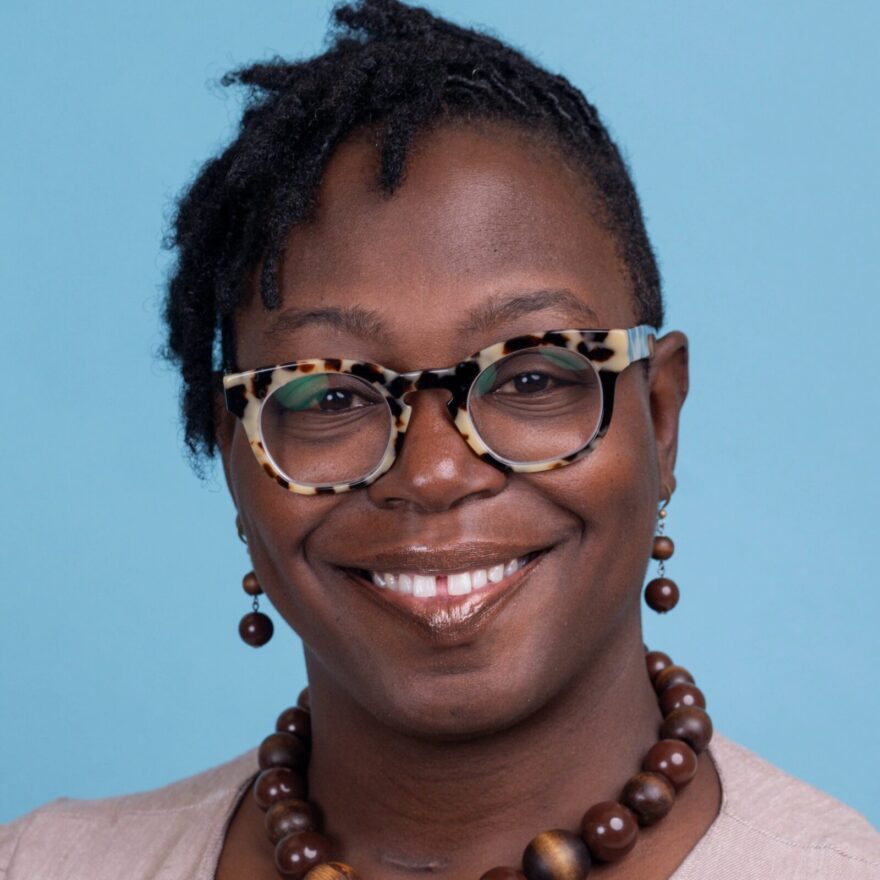
Johari Toe
Program Director
Why do you think educators are so important right now?
The COVID-19 pandemic reminded us that our society is built on systems that are explicitly designed to increase the marginalization of those who “don’t fit,” whether due to their race, gender, orientation, socioeconomic status, access to health care, or any other identifiers. Educators hold the keys to the pathway of freedom. Not because the job of an educator is just to teach the curriculum and engage learners—the real power is that each educator sits at the intersection of truth and identity. We have the power and license to see learners as who they are not and who they have been told to be. This allows us to engage with the curriculum in a unique way because relevancy will no longer be defined as what happened back in the day. Instead, it’s about how the decisions of our past impact our present. Learners now can wrestle with how to make the future different.
What impact have you seen this program have on the community?
BCTR continues to have a fundamental impact on the community it serves. When we support training teachers who have been taught not only how to develop and teach lessons that are aligned to the standards but how to honor and support the whole child, that experience positively impacts the individual child, their family, and the entire school community.
What makes this program so special?
It addresses the fundamental blueprint that all educators need to be successful in the classroom. The program is focused on supporting students and families from a human lens versus a functional lens. The team spends a significant amount of time teaching our residents about how our individual biases can hinder how we see and educate our children, especially those who attend schools in urban districts. This level of conversation opens the door not only for exploration of content, but more importantly exploration of self. This, coupled with a pre–service experience that mirrors the actual day–to–day work of a classroom teacher, along with individual coaching support throughout the school year is why we have been and will continue to be a program known for training teachers who make lasting impacts in their schools and the district.
What does justice in education mean to you?
Justice is defined as “the quality of being fair and reasonable.” Therefore, justice in education should be that all students receive a fair and reasonable pre-k–12 education experience that offers the same resources, level of expectations, and wrap–around support for all children regardless of race, socioeconomic status, gender, ableness, or any other identities. Unfortunately, that is not the world that we live in, so there must be a reframing of what justice in education means. Our work is to constantly uplift, unearth, and call out policies and practices that intentionally close the pathways to the education that Black and Brown children rightfully deserve. This cannot be accomplished and sustained by an individual. It takes a collective group that shares a commitment to reframing and reimagining the current structures that uphold systems that are steeped in oppressive practices.
What keeps you motivated in this work?
I am constantly motivated by the belief that nothing is impossible. Our children need to be seen as unique and beautiful humans; they deserve to be taught that they can and will do amazing things because the adults in their lives are charged with laying a strong foundation and opening doors that use to be closed. Our children can and will change the world by dismantling what we as adults were taught was “right for some.” Our children will make it “fair for all.”